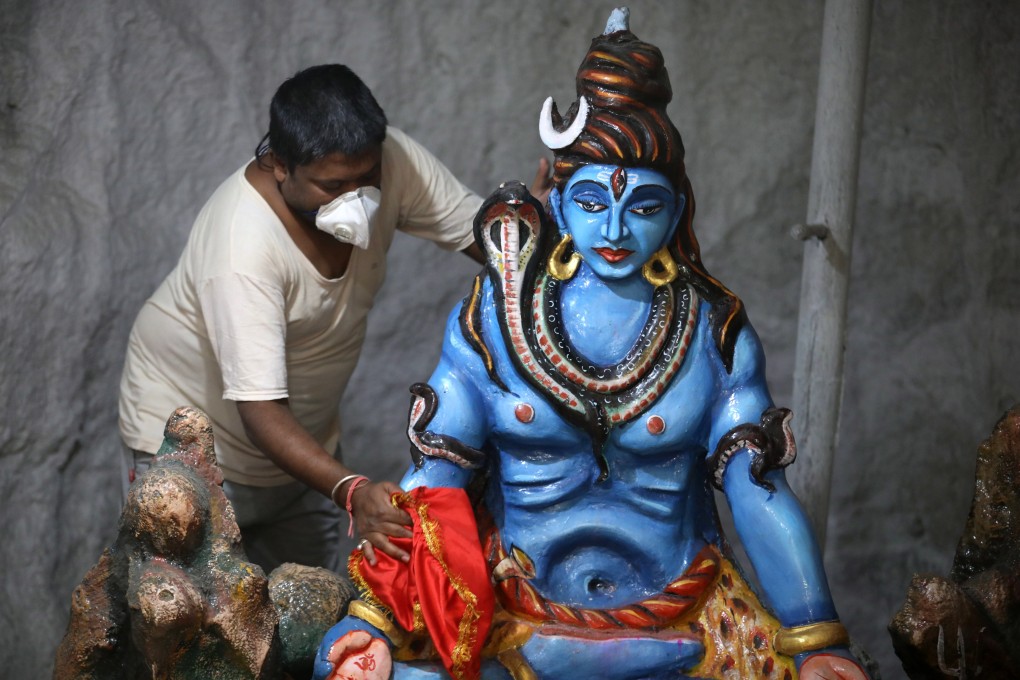Advertisement
India’s malls and restaurants reopen, amid record surge in coronavirus cases
- India has been easing out of lockdown, which began on March 25
- Official data on Monday showed a biggest single-day surge of infections
Reading Time:4 minutes
Why you can trust SCMP

India woke up to busy streets and crowded temples on Monday, as the country entered a new phase of reopening after a 10-week nationwide coronavirus lockdown.
Shopping centres, restaurants, hotels and places of worship were allowed to reopen. However, the development was marked by a surge in infections, leading India to overtake Italy and Spain to become the fifth worst-hit nation in the pandemic.
Nearly 10,000 new coronavirus cases were reported in India on Monday, its biggest daily spike since the outbreak began – an alarming sign the world’s second-most populated country after China could be reopening too soon.
Advertisement
India had 256,611 confirmed cases after a new daily spike of 9,983. The country has recorded 7,135 deaths, according to India’s Health Ministry, although the actual number could be higher.
Prime Minister Narendra Modi announced a nationwide lockdown on March 25 when India had 657 confirmed cases, bringing Asia’s second largest economy to a virtual standstill.
Advertisement
Monday signals the next phase of the country’s lockdown relaxation after the government allowed trains and domestic flights to resume in May, and encouraged manufacturing activity to kick-start the economy.
Advertisement
Select Voice
Choose your listening speed
Get through articles 2x faster
1.25x
250 WPM
Slow
Average
Fast
1.25x